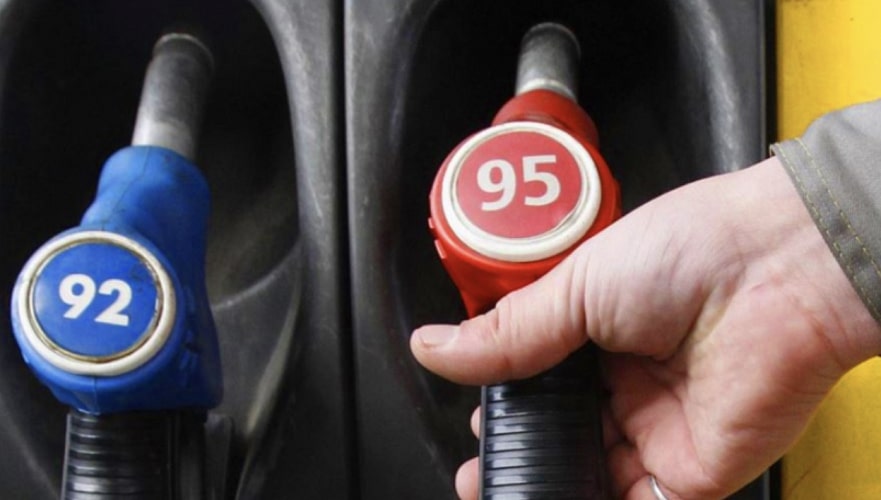Energy-rich Kazakhstan has turned to Russia for imports of AI-95 gasoline as oil production was partially or fully suspended at several fields in western Kazakhstan.
Kazakh Energy Ministry Almasadam Satkaliyev revealed on Tuesday that Russian energy giant Gazprom had commenced the supply of AI-95 gasoline to Kazakhstan.
“We will not allow a sharp rise in prices for any fuel,” EaDaily quoted Satkaliyev as saying on Tuesday. “We will import AI-95 gasoline from Russia.”
“Currently, AI-95 gasoline stock is sufficient for 15 days. With maintenance work at the Pavlodar refinery, a problem at the Atyrau refinery, and a decrease in AI-95 gasoline production at the Shymkent refinery, we anticipate to fully cover the market demands solely through imports from Russia,” he added.
The power outage incident at the Mangistau nuclear power plant (NPP) on June 3 resulted in the suspension of oil production at the Ozenmunaygas, Mangistaumunaygas, Karazhanbasmunay, and Embamunaygas fields in the Atyrau and Mangistau regions of Kazakhstan. Satkaliyev assured that the country will be able to restore oil production levels to pre-incident levels within a month.
KazMunayGas, the national oil and gas company, further announced that the Atyrau refinery aims to resume production by the end of this week.
Pavlodar, Atyrau, and Shymkent refineries are the three major oil refineries in Kazakhstan, with an estimated total refining capacity of approximately 430,000 barrels of oil per day.
The Pavlodar Oil Chemistry Refinery, the largest oil refining enterprise in northeastern Kazakhstan and fully owned by KazMunayGas, is undergoing a major overhaul from June 20 to July 19. Due to equipment repairs, AI-95 gasoline production remains suspended from July 3 to 14.
As the world's ninth-largest exporter of crude oil, Kazakhstan holds approximately three percent of the world's total oil reserves. The country's primary oil output is derived from its three largest fields, which include Kashagan, Tengiz, and Karachaganak.
Kashagan, located in the northern part of the Caspian Sea near Atyrau, was discovered in 2000 and is considered one of the most significant oil discoveries of the past four decades. It is estimated to hold between 9 and 13 billion barrels of crude oil, making it a colossal field according to the operator.
The Tengiz field, situated on the northeastern border of the Caspian Sea in western Kazakhstan, is a supergiant field with up to nine billion barrels of recoverable reserves. With a surface area more than four times that of Paris, this enormous onshore oilfield is operated by Tengizchevroil (TCO), a joint venture between Chevron (50%), KazMunayGas (20%), ExxonMobil Kazakhstan (25%), and Lukarco (5%).
The Karachaganak field, discovered in 1979, stands as one of the world's largest gas and condensate fields. Extending over an area of more than 280 square kilometers in northwest Kazakhstan, it boasts geological initial reserves, with over 1.7 billion tons of liquid hydrocarbons and an excess of 1.7 trillion cubic meters of gas.







 President Ilham Aliyev shed light on the evolving contours of the peace process with Armenia during an international conference in Baku this week. ...
President Ilham Aliyev shed light on the evolving contours of the peace process with Armenia during an international conference in Baku this week. ...
 Azerbaijan and Armenia started the process of demarcation of their border on Tuesday, with the installation of the first border markers based on ge...
Azerbaijan and Armenia started the process of demarcation of their border on Tuesday, with the installation of the first border markers based on ge...
 President Aliyev emphasized the critical role of the North-South Transport Corridor in fostering transport cooperation between Azerbaijan and Russi...
President Aliyev emphasized the critical role of the North-South Transport Corridor in fostering transport cooperation between Azerbaijan and Russi...
 Iran and Pakistan have signed eight cooperation documents in various fields, and agreed to strengthen ties to fight terrorism in the region.
Iran and Pakistan have signed eight cooperation documents in various fields, and agreed to strengthen ties to fight terrorism in the region.
 As the conflict between Ukraine and Russia escalates, the strategic importance of Kharkiv, Ukraine's second-largest city, has come sharply into focus.
As the conflict between Ukraine and Russia escalates, the strategic importance of Kharkiv, Ukraine's second-largest city, has come sharply into focus.
 Iranian President Ebrahim Raisi expressed Tehran’s readiness to participate in significant development projects in Sri Lanka during the inauguratio...
Iranian President Ebrahim Raisi expressed Tehran’s readiness to participate in significant development projects in Sri Lanka during the inauguratio...



